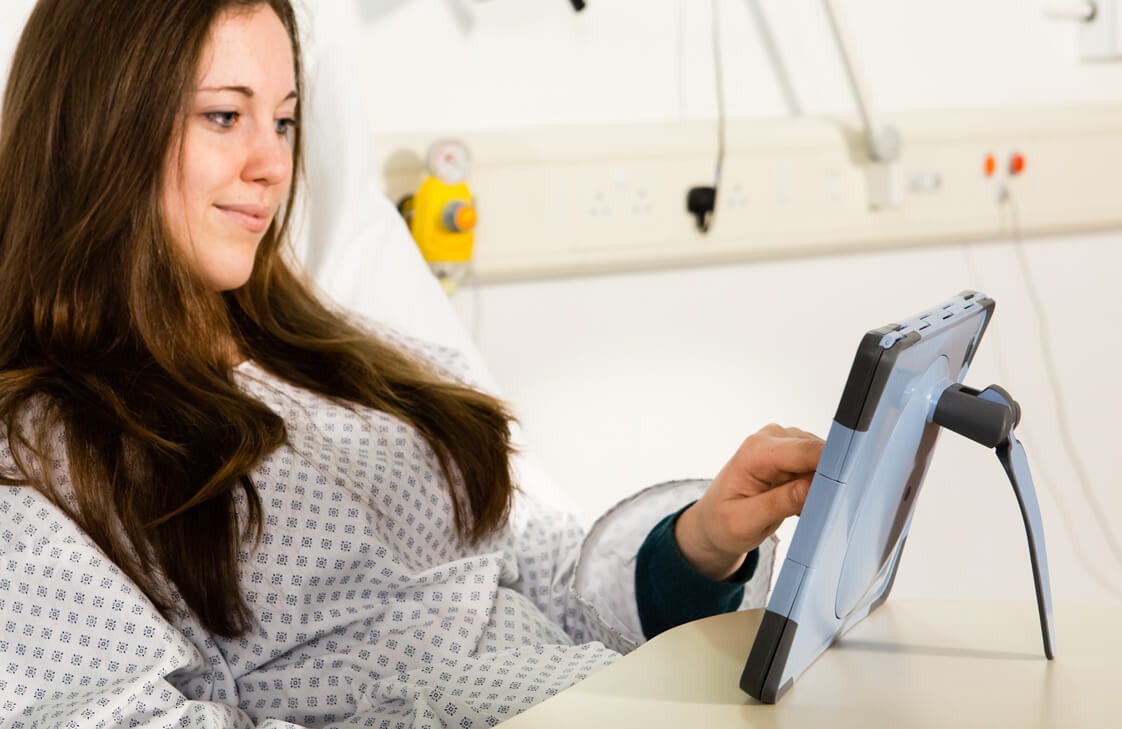Hospitals want to increase patient satisfaction and remain guardians of infection control. Patients want to be informed, they want access to the internet, they want to connect with their family at home. All the things you would expect if you went to a coffee shop.
Up to now, this has been the domain of large service providers, however thing are changing in the USA and Europe. The iPad is the dominant tablet and new software now allows the iPad to work seamlessly in a hospital environment.
It is now possible for patients to access their Epic My Chart record from an iPad and view movies while they are waiting for a scan. French hospitals use this with children to reduce the their tension before an operation.
So, if you are a hospital and want to get started. Here how you do it:
Trying it out in a small wing of the hospital is the way to go. If you have 10 iPad Air 2’s or the iPad Pro 9.7″ we can help. We provide the FlipPad which is a medical grade case for the iPad. In the USA, we will offer Trial FlipPads free for 30 Days. This web link is offered for people who want to get started immediately.
The most common issue that you may encounter. “people will steal the iPads!” we can lock them in the case and cable them to a bed if required. Some hospitals want an integrated solution. We are interested in your opinion of a new product in the picture below. We have combined the solution into a lockable bedside stand.
We think hospitals in the USA and Europe are moving in this direction.
If you work in a hospital and want to understand how you can build the solution.
We would be happy to help.
www.futurenova.com



 NHS AWAITS NEW MEDICAL-GRADE RUGGEDIZED IPAD CASE TO SUPPORT INFECTION CONTROL
NHS AWAITS NEW MEDICAL-GRADE RUGGEDIZED IPAD CASE TO SUPPORT INFECTION CONTROL Developed in consultation with doctors and nurses at Great Ormond Street Hospital for Children, the FlipPad™ can hang on any standard NHS bedrail and be operated by a clinician wearing standard surgical gloves whilst also examining their patient. In addition the FlipPad™ also features a new antimicrobial glass to resist bacterial growth, and the materials used are approved for use in operating theatres and elsewhere in the NHS where infection prevention is important.
Developed in consultation with doctors and nurses at Great Ormond Street Hospital for Children, the FlipPad™ can hang on any standard NHS bedrail and be operated by a clinician wearing standard surgical gloves whilst also examining their patient. In addition the FlipPad™ also features a new antimicrobial glass to resist bacterial growth, and the materials used are approved for use in operating theatres and elsewhere in the NHS where infection prevention is important.